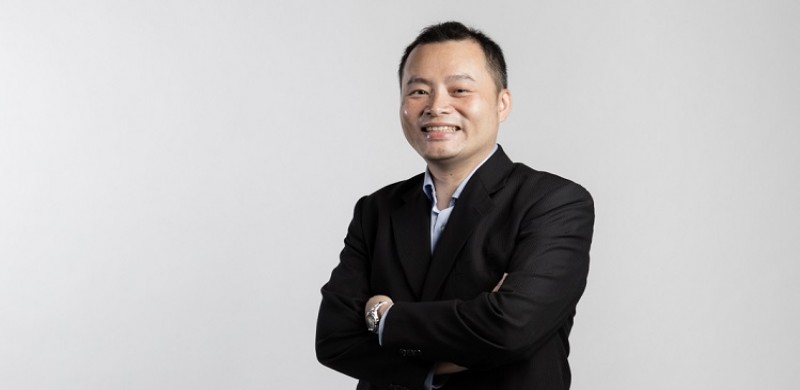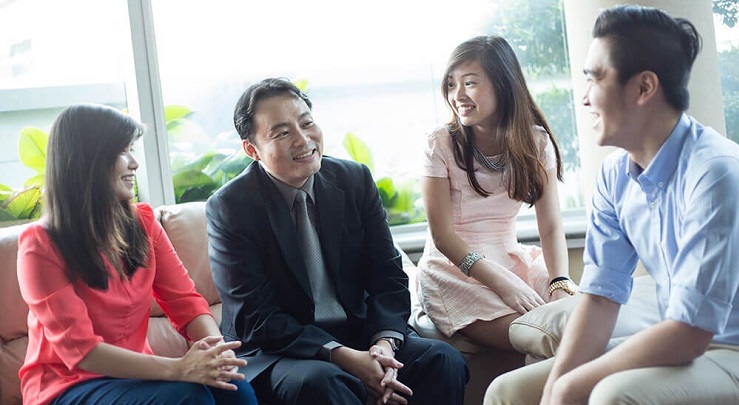Chat with the Professor: Dr Gary Pan Associate Professor School of Accountancy Singapore Management University

Increasingly, the skill sets needed for a professional in the Treasury, Finance and Accounting industry has evolved and changed over the years. Just five years ago, deploying Artificial Intelligence in a normal corporate setting is sometime out from the Sci-Fi movie, but fast forward to now, it is a reality that has permeated many industries. Even our smart phones have AI that can call our love ones simply by acting on our voice commands.
We get the rare chance to speak to the Professor who runs the academic program at one of Singapore’s leading universities and ask him about his experiences and views on the changing landscape.
TFA Geeks: Hi Prof, it is a privilege for us to have this opportunity to speak to you today. We understand that your main interests are in Accounting Information Systems, Accounting Data and Analytics and Accounting Education, just to name a few. Your research in these topics has been widely reviewed in top academic journals and you have also been very active in various university and industry committees as well. Could you share with us what keeps you so passionate and motivated in education and the accounting industry?
Dr Gary Pan: I have been following how sophisticated technologies changed traditional accounting profession from manual bookkeeping to using data analytics, blockchain and artificial intelligence to change the day-to-day structure of how we work, both as accountants and across other professional services industries. This revolutionary change is extremely fast paced and is impacting the entire accounting industry.
While this change may bring about uncertainty in the accounting landscape, I personally believe it presents a significant opportunity for the accounting profession. With innovation, accounting work is carried out more efficiently and effectively. The profession is now able to provide deeper insights and as a result, offering strategic advice to its clients and management. Students are increasingly viewing an accounting career as more interesting and fulfilling, rather than having the traditional view of accounting work as mundane and low value, one which plays a back office function.
TFA Geeks: We have read some of your articles on redefining the roles of young accountants in the face of automation and digitalization. With so much talk about artificial intelligence (AI) and technology, do you think accounting jobs are at risk?
Dr Gary Pan: Not at all. It just means that accountants and accountancy firms are going to have to rethink the services that they offer, replacing repetitive, low-value activities with more strategic, insight-driven ones. Already, firms are moving away from their traditional service lines to incorporate advisory services. In fact, young accountants should embrace change rather than fear the coming wave of automation in the accounting profession. They should see the change as a positive development that frees them from performing many mundane tasks as technologies may allow them to enhance the various roles in the accounting profession.
TFA Geeks: How do you think accountants today can prepare themselves for the changes of the future?
Dr Gary Pan: Accountants need to be open-minded and learn to utilize technologies in their work. They need to have a certain level of IT competency to stay relevant. A good example of accounting work is technology enabled is in audit. Auditors used to sample transactions for testing. Now, they can rely on data analytics software to test the entire population of transactions. It is important to use their experience to ask the right questions so that they can spot unusual patterns with the support of data analytics software.
Young accountants require more than just technical accounting knowledge to be a successful accountant in the digital age. They need to be able to think strategically, communicate effectively and be tech-savvy in order to unlock the opportunities which technology has created for the accounting profession. In other words, accountants need to be able to interpret those numbers, understand their strategic importance, and communicate effectively with top management. They will also need to be conversant with new technology. Most importantly, accountants need to have the mindset of a lifelong learner—to learn, unlearn and relearn all the time in order to stay relevant in the new economy.

TFA Geeks: To stay relevant in finance and accounting, professionals today definitely need to continuously adapt and never stop learning. How do you think companies or businesses can partner universities in preparing the workforce to be ready for the future?
Dr Gary Pan: I have two recent examples. First one is that SMU’s School of Accountancy has signed a MOU with Deloitte to collaborate on Audit Analytics programmes in Jan 2018. Mr Philip Yuen, CEO of Deloitte Singapore is excited to embark on this first-of-kind partnership with SMU. Deloitte believes that with this programme they will be able to enhance their audit analytics capabilities, be more productive and efficient and value-add to their clients.
The second example is on The Future of Audit with AI project, which is a collaboration between Deloitte Singapore and SMU School of Accountancy (SoA) to develop future-ready audit professionals. This project was supervised by Associate Professor Gary Pan and Professor Venky Shankararaman, it is part of SMU-X – a learning pedagogy that allows students to apply an interdisciplinary approach as they develop innovative solutions for real client projects with mentorship by faculty and the industry partner.
TFA Geeks: Other than teaching and research, you are also the Academic Director of SMU-X. Could you share with us what SMU-X is about, and your involvement in SMU-X? Is there anything you hope to achieve for SMU-X?
Dr Gary Pan: SMU is a pioneer in creating experiences that makes learning relevant to the real world. And this emphasis on self-learning and collaboration with industries is epitomised in the SMU-X Initiative, where I am the academic director for SMU-X, an experiential learning framework where students take on projects from companies and community organisations.
SMU-X focuses less on content teaching and more on student-centred and learning-focused methodologies.
Students do projects. Yes, all other traditional university curricula also have projects but the main difference between SMU-X and traditional university curricula is that in SMU-X projects, students get to work on a real problem (not a case) and provide solutions to real clients.
They meet up with the clients and stakeholders and get their hands “dirty” to research and test if their suggestions really work.
SMU-X Overseas courses, which are conducted with the SMU-X pedagogy, integrate classroom-based instruction and overseas hands-on projects. They feature collaboration between SMU, overseas partner universities and organisations as they work with host companies to provide consulting-like analysis and recommendations.
Overseas courses will be launched in Thailand and Israel. More SMU-X Overseas courses are scheduled to be launched in Indonesia, the Philippines, Taiwan and Laos, with more destinations to be added in future.
The initiative started in 2015 with two courses in two schools, reaching about 58 students and working with 11 partner organisations. There are now 38 courses as of December 2017 in all six schools reaching over 3,000 students and working with more than 250 partner organisations.
We have come a long way and realise that implementing change in the university is not so easy. However, it is critical for us to see that the learning environment is changing rapidly and we, as a university, need to react and become more relevant so as to cope with challenges in the disruptive landscape.
TFA Geeks: You have chosen a different route from many other accountants who aspire to be Finance Directors or CFOs, and have had many achievements in the academia and teaching. If you would start your career again, would you have chosen the same path? Do you have any career advice for young accountants who are just starting out?
Dr Gary Pan: Yes - I would still want to be a University Professor. I treasure the opportunity to make a difference in the education and lives of students. I particularly enjoy the interaction with students and witness their learning and growth.
My advice for young accounts will be to maintain a positive learning attitude. They should pursue knowledge through continuous learning, so that they are able to keep improving. In addition, keeping up with technology is vital. Always aspire to understand the game-changing role of technology and use it as a key differentiator. Having such a mindset will make a big difference in their careers, especially in the volatile, uncertain, complex and ambiguous (VUCA) world.
*Parts of the conversation were reproduced from earlier publications.



